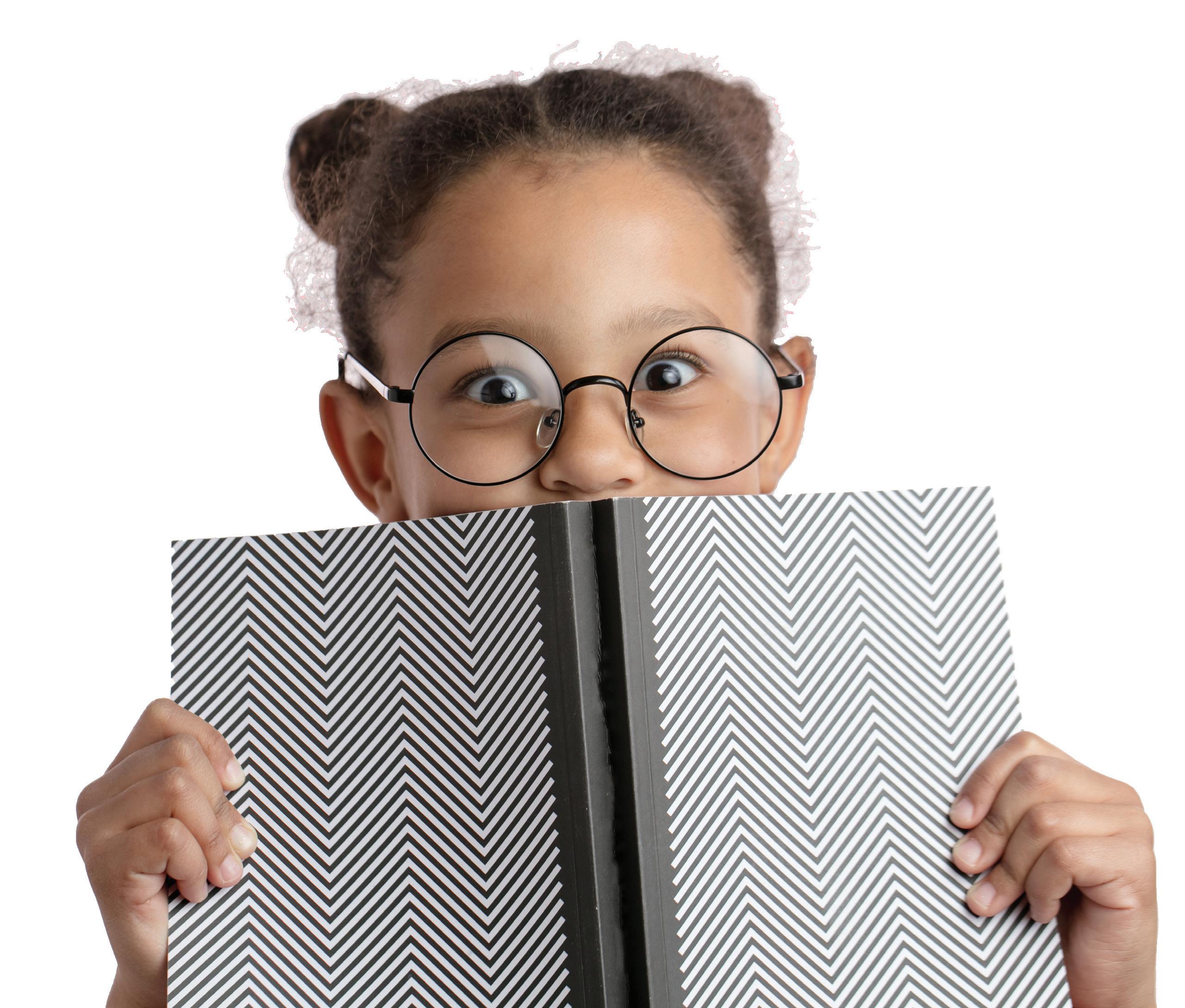
3 minute read
It's Never Too Early to Start Reading
Summer reading programs are one early literacy tool
By Elyse Jones
Advertisement
Summer is here, which means in addition to warmer weather Pikes Peak Library District’s Summer Adventure [presented by Children’s Hospital Colorado] is back! This summer reading program is not just to keep kids busy while on school break, it also plays an important role in early childhood literacy. Participation in Summer Adventure can help prevent “summer slide” by combating the summer learning loss and encouraging lifelong reading habits.
Learning to read starts from infancy with the help of parents and caregivers by reading aloud together. From birth to three years old, children’s brains are growing rapidly. Reading to your kids helps with early language development as they begin to expand their vocabulary and listening comprehension, establishing the fundamentals of being a good reader long before children reach school age.
According to the National Assessment of Educational Progress, the majority of eighth grade students in Colorado are below proficiency in reading. The same organization notes that only 17% of 13-year-old students reported reading for fun on their own time in 2020, down from 10 years ago.
The good news is there is never a bad time or age to embrace reading for pleasure. Pleasure reading not only increases academic performance but also social awareness and empathy. Literary fiction is an exploration of the human experience transporting the reader into the mind of characters and worlds that may be different from their own.
The World Literacy Foundation confirms that early intervention can help develop a child's brain with as little as 20 minutes of reading per day. These crucial years can shape the adults they become, the success they achieve, and the contributions they make to the economy and society.
Children are developing the skills they need to read and write long before they actually know how to read and write. Early literacy lays a foundation so children learn the necessary skills for reading, but also incorporates writing, talking, singing, and playing.
Practice writing helps develop fine motor skills and connects spoken and written words. Even the youngest children are already strengthening the muscles in their fingers and hands that they will use for writing and drawing later. Babies and toddlers can sit and spread apple sauce on their tray to make simple letters, shapes, or scribbles.
Speaking to babies and toddlers throughout the day helps to build vocabulary. Talk to your child from birth and remember to give them a chance to respond to you. One way to do this is to go for a walk and talk about the weather, the clouds in the sky, and describe what you see, smell, hear, and feel. Learn more about how to build your baby’s brain through talk with LENA Start at ppld.org/LENAStart.
Creating opportunities for music, rhythm, and song in your day slows down language so that children can hear the syllables more clearly. Include hand motions, claps, and movement when you sing songs to help your child connect with them even more. When you are in the car sing juvenile songs such as “The Wheels on the Bus” or "Twinkle, Twinkle, Little Star."
Play helps children express themselves; it provides them the opportunity to learn more about their world as they problemsolve, cooperate with others, and practice decision-making. It is important to help them learn to think symbolically when they later learn that letters and words have meaning.
PPLD can play a vital role in early childhood development and literacy. Whether it’s joining the Summer Adventure reading program for ages 0 - 18, or participating in another program, make the Library part of your summer!
Reading to your kids establishes the fundamentals of being a good reader long before children reach "school age.
Start this summer! ppld.org/summerkids






